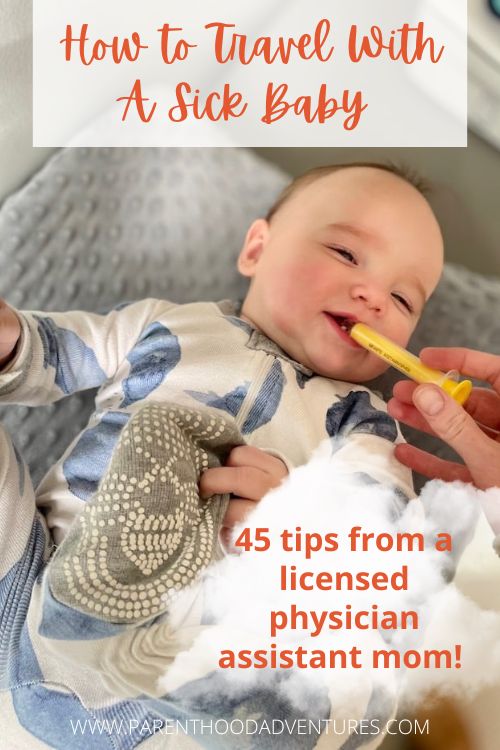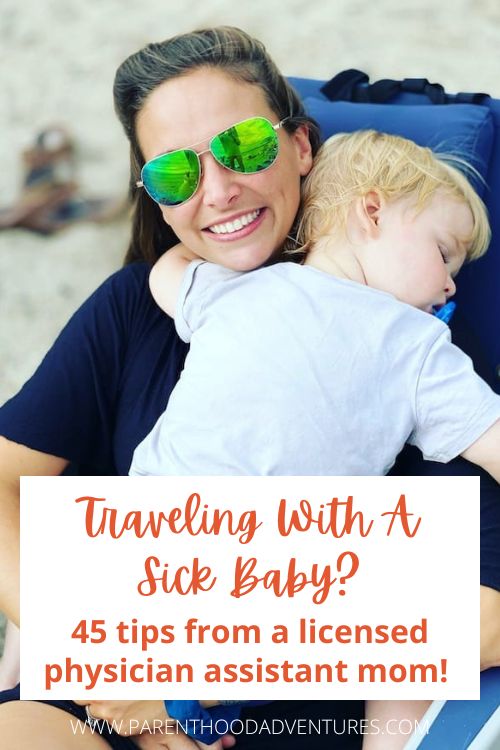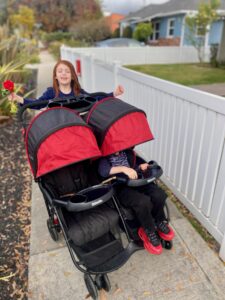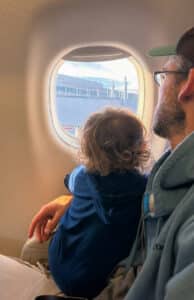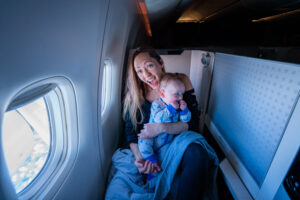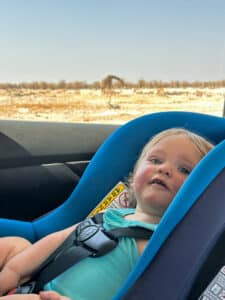45 Tips for Traveling with Sick Kids (and Keeping Your Family Healthy!)
As a licensed physician assistant and mom of two, I’m always trying to keep our kids healthy so we can make the most of cross-country trips, holiday celebrations, and family gatherings. We’ve adventured far and wide with our children, so we’ve learned firsthand how to keep them as illness-free as possible for travel — and what to pack in case they get sick.
Here are our 45 quick tips for keeping children healthy before and during travel, and for navigating family trips with sick kids.
Before You Leave
Before boarding your flight or starting the car, set your family up for a smooth and healthy trip.
1. Clear your trip with the pediatrician.
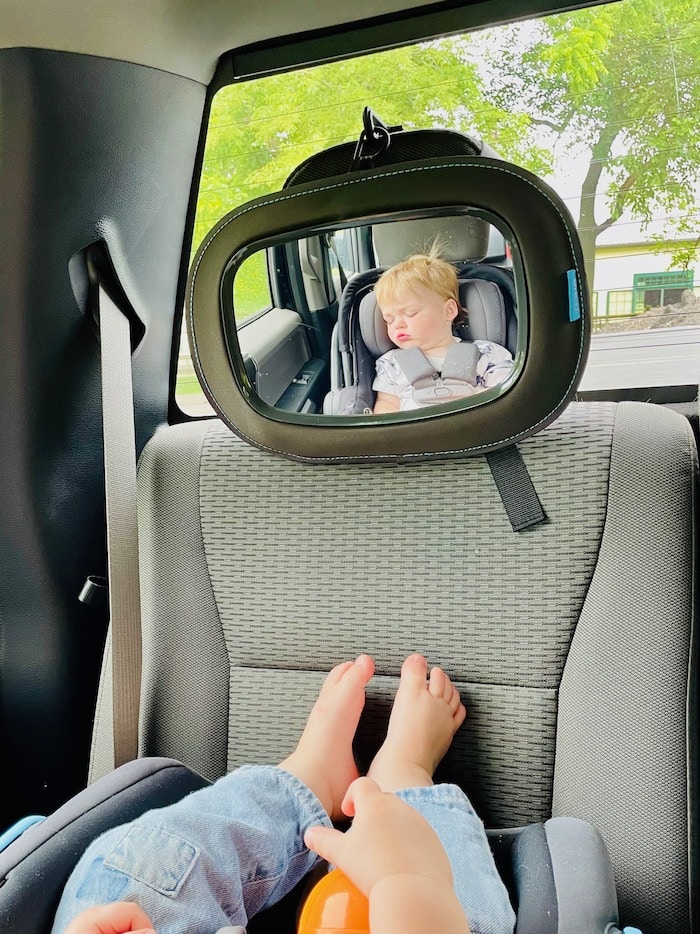
If you have any concerns about your child’s health before traveling, check with your pediatrician before departing. Be specific about where you’re going and what kind of care you’ll have access to at your destination.
2. Update your child’s vaccines.
Routine vaccines protect against diseases that are common in many countries, even if they are rare in the United States.
Talk to your pediatrician about protecting against COVID-19 while traveling. As of June 2022, COVID-19 vaccines are available and approved for babies as young as six months old.
3. Research common illnesses at your destination.
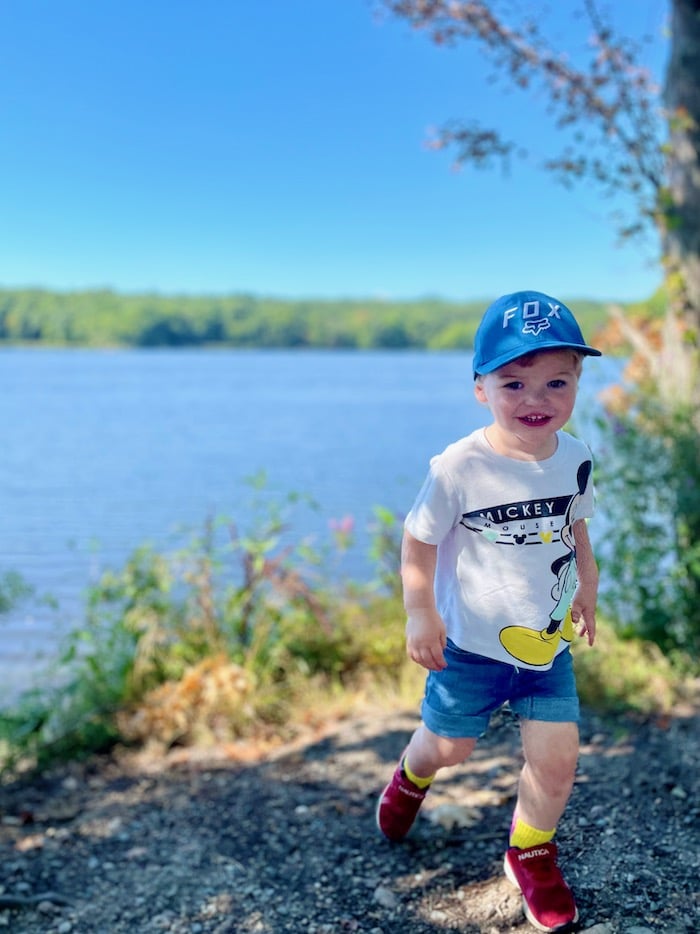
If you’re traveling internationally or headed to a different climate, be aware of any diseases endemic to where you’re going. The Centers for Disease Control and Prevention (CDC) provides tips on vaccines and medicines, and health precautions specific to various destinations. Depending on your trip, you may need to take extra steps to avoid bug bites and ensure access to clean drinking water.
4. Look up hospitals and urgent care facilities nearby.
This is true even if your kids are in perfect health and rarely get colds. Unexpected injuries and illnesses can happen anywhere.
Look for a children’s urgent care facility if possible, so your child can see a pediatrician. These are open most hours of the day and are perfect for quick visits when away from home.
If things are more serious, it’s best to know where the closest emergency department is, including the closest children’s hospital.
5. Limit germ exposure before the trip.
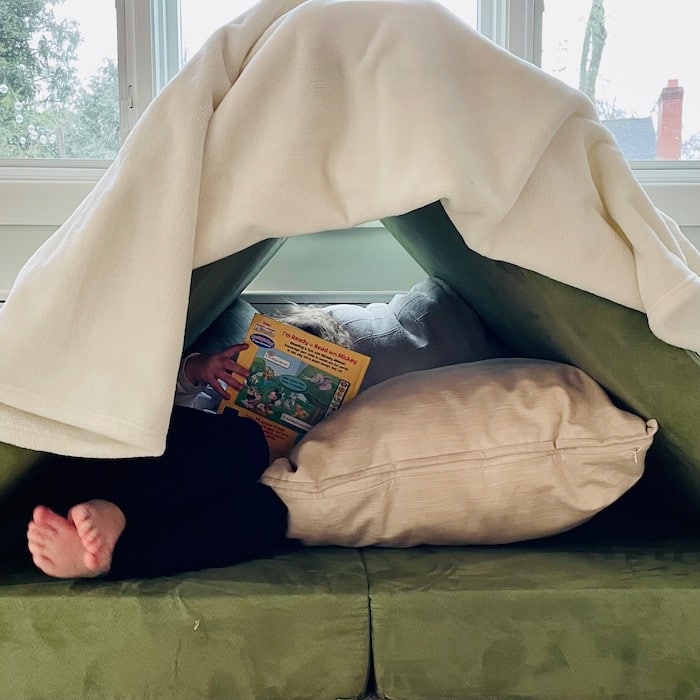
Whenever we have a big trip or holiday gathering coming up, we try to limit our family’s exposure to germs in the one or two weeks leading up to departure. If possible, find fun ways to entertain younger tots at home by building a fort or crafting rather than swapping germs with other toddlers at the library train set. We’ve learned the hard way how difficult it is when they come down sick right before they’re supposed to see their grandparents or fly across the country.
6. If your child is ill, consider postponing your travel plans.
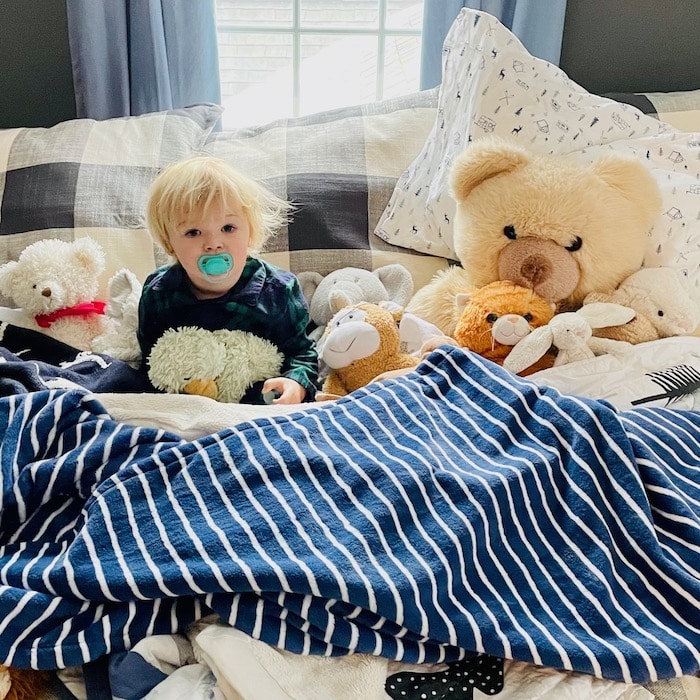
Traveling with sick kids is no fun. If your child is really under the weather, they might simply not be up for the trip.
If you have kids who are unwell before even leaving for your travels, consult your pediatrician. Although it can be a bummer, sometimes it’s better to let them rest and heal at home.
Time to Pack
I don’t think I ever appreciated how lightly I could pack before becoming a parent. As you’re loading up your luggage with the thousand items parents need to bring on family trips, don’t forget the health essentials.
We’ve rounded up everything you might need if someone develops a minor illness while you’re away:
7. Take plenty of hand sanitizer.
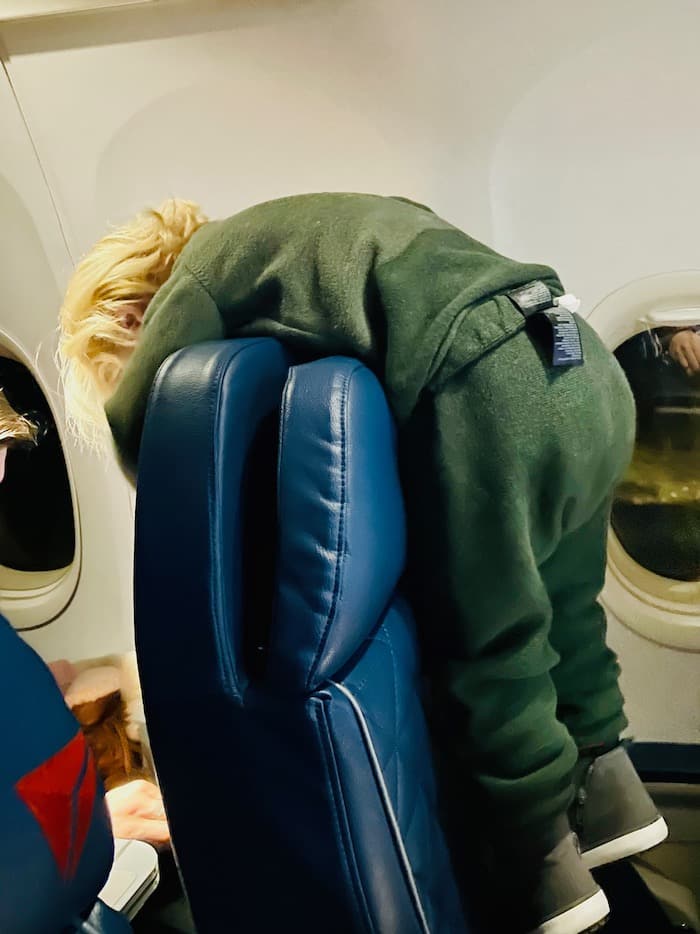
Hand sanitizer should always be at the top of your packing list. Children touch lots of surfaces during travel and in public places. Sanitizer limits your family’s germ exposure and reduces the spread of germs to others. Be sure to keep it out of reach of little ones when not in use.
8. Pack sanitizing wipes.
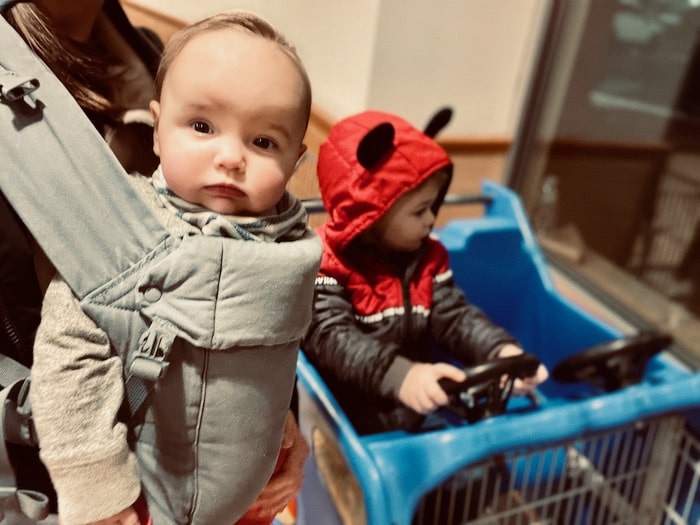
Disinfecting wipes are great for everything from shopping carts and plane seats to bathroom door handles and restaurant tables. In a pinch, most flights have small packets of disinfecting wipes on board.
9. Always have tissues.
Any parent knows that children’s noses can run like faucets and make a whole pack of tissues disappear in a flash. Be sure to bring plenty — and pack them in every bag, so they’re never out of reach.
10. Bring any medications on board.
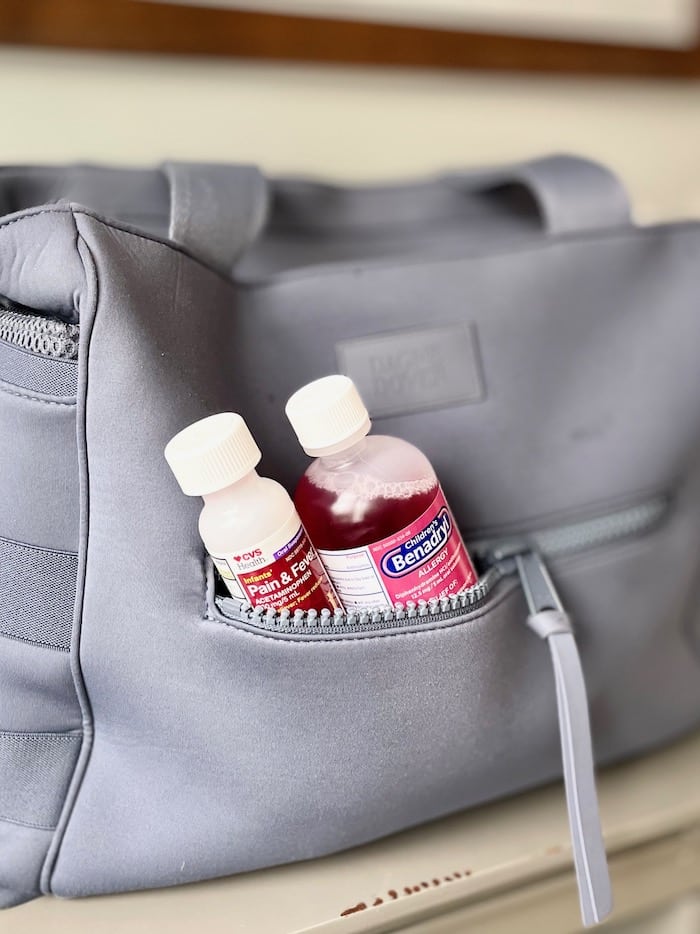
If your son or daughter takes medication, even if not on a regular basis, it’s a good idea to have it with you if you’re flying. The Transportation Security Administration (TSA) allows liquid medications in carry-on bags in reasonable volumes. Although you might not need to administer it during the flight, carrying medication with you means you won’t be without it if your checked luggage gets lost.
There are several over-the-counter medications that might be helpful to have on hand for your child. Check with a pediatrician before administering any medication, especially for the first time, and always make sure you’re dosing them correctly.
11. Choose age-appropriate pain relievers.
There are few things more confusing than picking out the right pediatric pain reliever at the pharmacy. Acetaminophen (also known as Tylenol) and ibuprofen (also known as Motrin) both come in infant and children’s formulations, so check with the pharmacist to make sure you have the correct preparation for your child. They are both good to have on hand for fever, body aches, and teething pain.
Make sure to get clearance from the pediatrician before giving pain medicine, especially for babies and toddlers under two.
12. Don’t forget about allergy season.
Doctors sometimes recommend pediatric allergy medicine for seasonal symptoms such as a runny nose or watery eyes. If your child takes one of these medications, be sure to have it in the carry-on bag. We inevitably forget our son’s Zyrtec when we leave home, and we now have four almost-full bottles in the pantry, because we end up buying a new one every time we travel.
13. Prepare for new allergens, too.

Introducing children to new climates can unveil skin or contact reactions they haven’t experienced before. Call the pediatrician right away if your son or daughter develops a rash or allergic reaction.
Diphenhydramine, or Benadryl, is an over-the-counter medication that doctors sometimes use to treat allergic reactions. The American Academy of Pediatrics (AAP) recommends against Benadryl for babies under two, and advises parents to wait for physician clearance for children between two and six.
14. Consider cough medicine or honey.
Over-the-counter cough medicine is considered safe to use for children over six, as long as parents follow dosing instructions closely. Many cough and cold medicines include ingredients such as acetaminophen for pain and fever, so they shouldn’t be taken concomitantly with pain relievers.
As an effective home remedy, a small amount of honey can soothe symptoms for tots over one. Never give honey to an infant younger than 12 months.
15. For older kids, take cold medicine along.
Similar to cough medicine, over-the-counter cold medicines and decongestants need to be used with care. While they are okay to administer to older children with proper dosing, they aren’t safe for children under four, and should only be given to kids between four and six under a doctor’s direction.
16. Grab a pack of cough drops, too.
Lozenges are a choking hazard for children under four, but they can reduce coughing and sore throats for older kids.
17. If you’ve got the space, bring a humidifier!
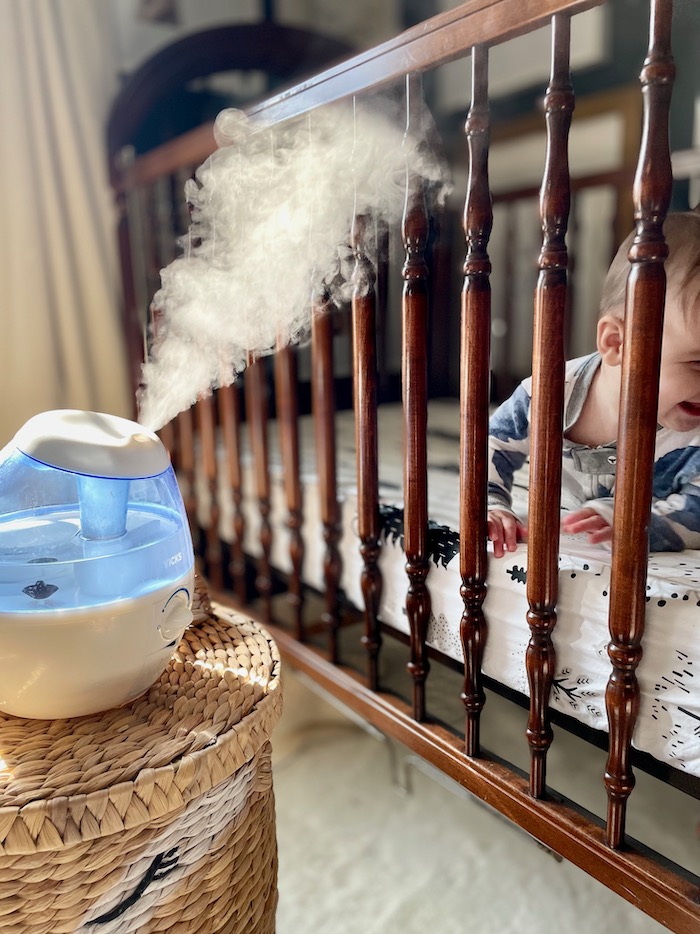
Humidifiers are large. Although impractical to fly with, it might be a good idea to bring the humidifier along if your child has a cold and you’re traveling by car. Humidifiers ease discomfort related to cold symptoms, and they’re perfect for babies and toddlers who are too young to take cold medicine.
18. Try a mentholated rub.
Rubbing a mentholated ointment like Vicks VapoRub Childrens over your child’s chest and neck can relieve cough symptoms. Their body heat will naturally transfer the rub’s active ingredients to the air, allowing your child to slowly breathe the medicine in over time. Be sure to seal the ointment tight and place it out of reach of children when not in use.
19. Pack the nasal saline.
Over-the-counter saline spray or drops can loosen dried mucus and relieve congestion. Administering nasal saline to congested babies before feeding can also ease their intake of breastmilk or formula.
20. For congested babies, bulb syringes are great, too.
When used carefully, bulb syringes suction out mucus loosened up by saline drops.
21. Bring your thermometer.
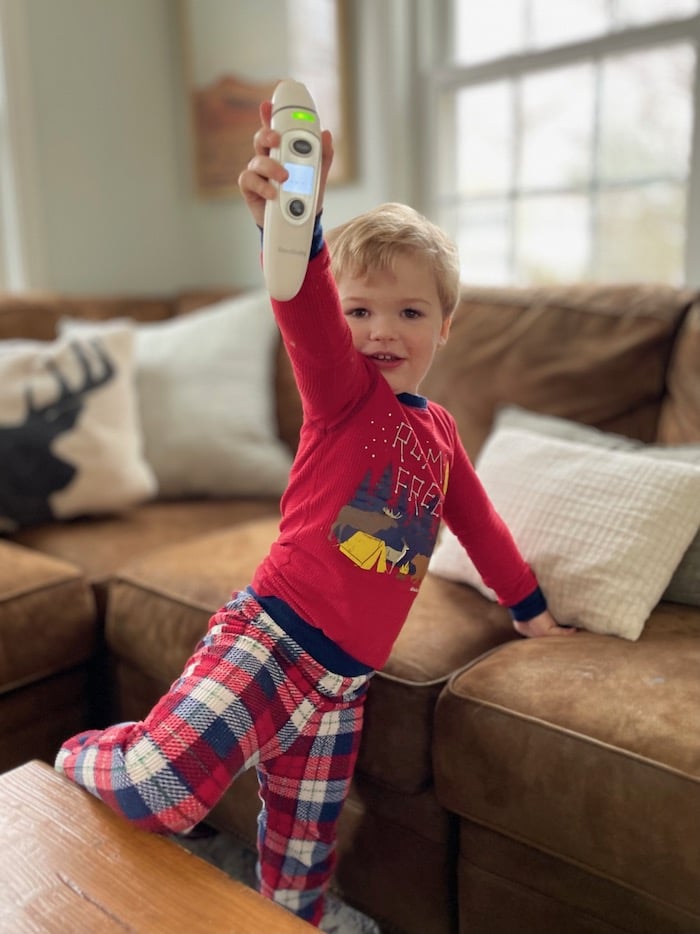
If you end up needing to call the pediatrician for advice regarding a cough or cold, they’ll most likely ask about fever. Be prepared and pack a thermometer (one of our son’s favorite gadgets!) so you don’t have to hunt one down at your destination.
22. Invest in some pediatric masks.
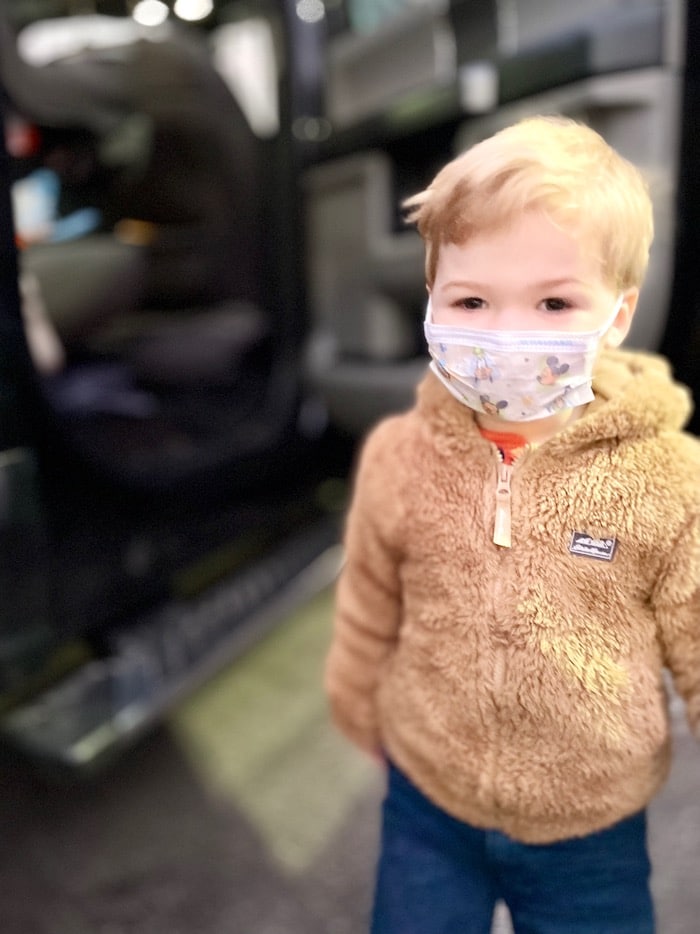
Depending on where you travel, many public places have masks available, but adult masks can be hard to keep on little faces. Finding a smaller mask with a favorite animal or cartoon character (anything with Mickey is a winner in our house!) can make your child more excited to wear it.
23. Pack those extra COVID tests.
It might be a good idea to bring some home COVID tests on your travels. If you’re wondering whether your little one needs testing for COVID based on their symptoms, call the pediatrician or bring them to a local urgent care facility.
24. Don’t forget the vaccine card.
If your youngster gets sick on vacation, they might need to see a local doctor. Having their COVID vaccine record with you makes it easy to give the office the necessary information regarding your child’s shots and boosters.
25. Protect little bodies with insect repellent.
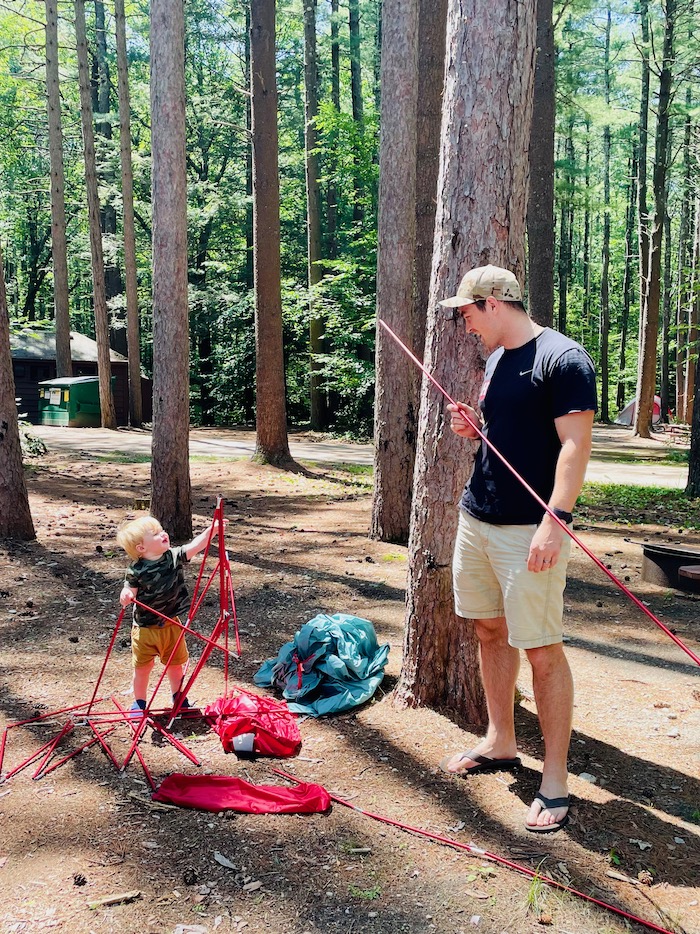
Traveling to different regions may mean new risks of diseases transmitted by insect and tick bites. Follow AAP guidelines for choosing a safe and effective insect repellent for your child.
26. Pack the first aid kit.
No matter how careful you are on your trip, accidents happen. Be ready for cuts, bumps, and bruises by keeping a stocked first aid kit in your car or suitcase.
27. Plan distractions for travel time.
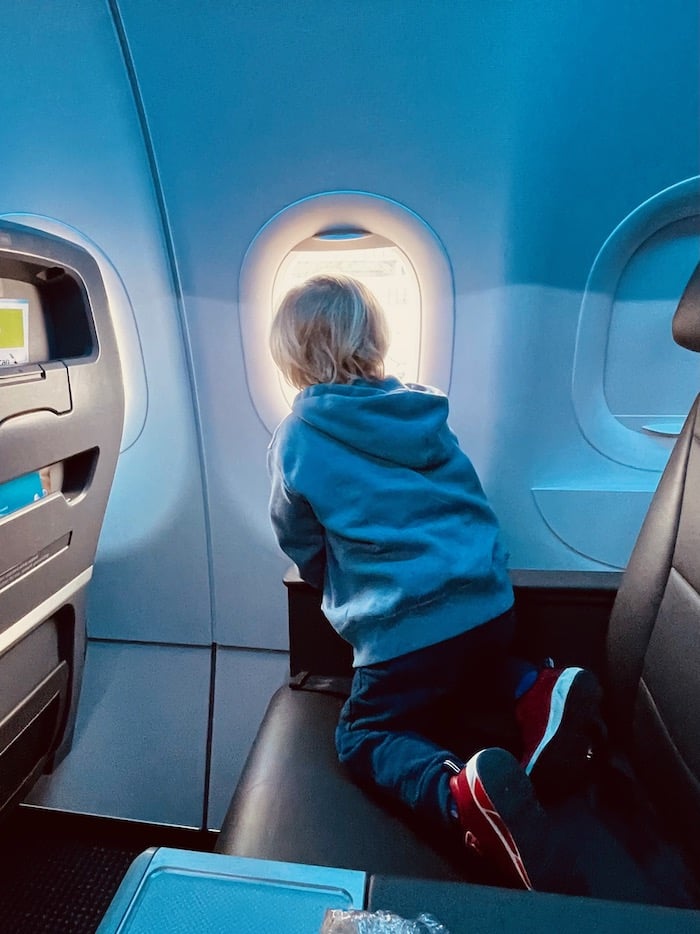
Road trips and flights feel even longer when someone doesn’t feel well. Make the trip a smooth one by bringing plenty of toys and activities for the ride. For specific recommendations, check out our tips for flying or taking a road trip with a toddler or baby.
28. Always keep a change of clothes accessible.
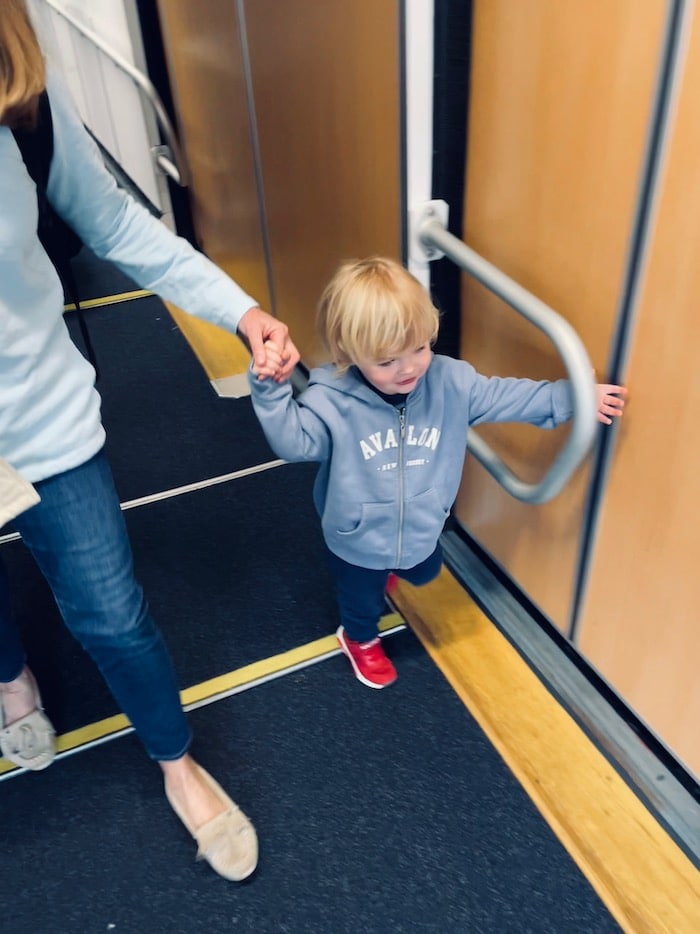
If your child’s stomach gets upset during travel, you’re going to need clean clothes on hand — and a plastic bag for dirty laundry.
29. Keep the travel potty nearby.
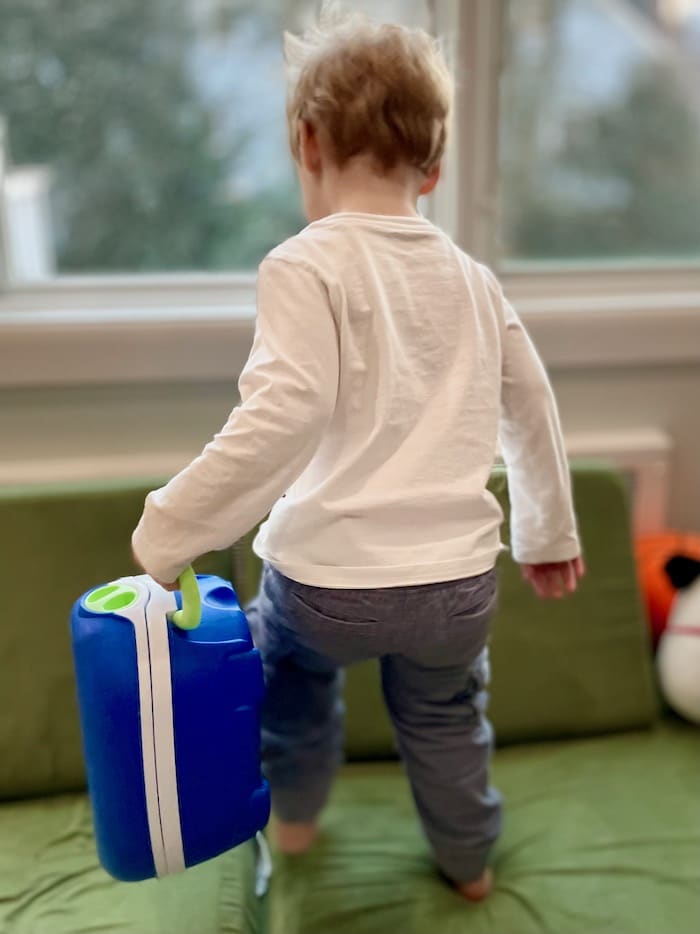
If you’re traveling by car with a child who’s no longer in diapers, make sure the training toilet is accessible in case they need to go during the trip. The My Carry Potty is portable and sealable for travel.
Managing Your Trip
No matter how much you prepare, not all colds are preventable. If your youngster starts to feel unwell on vacation, adjusting your travels and giving them some extra love can keep them comfortable while away from home.
30. Make a plan for takeoff and landing.
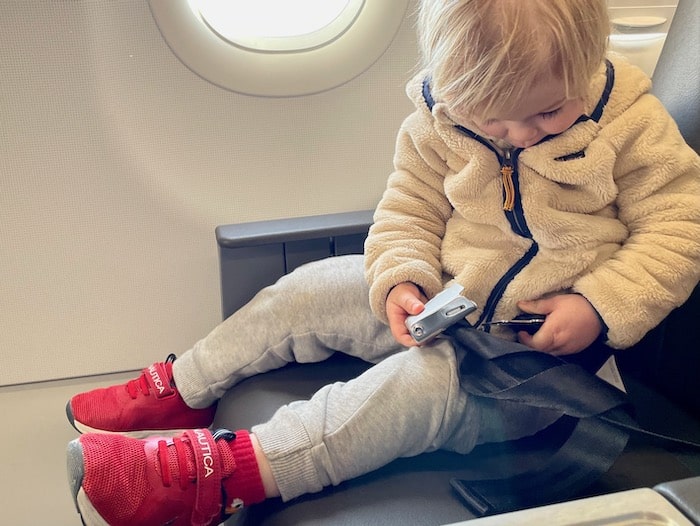
If you’re traveling with young ones who have a cold, ear pain during the plane’s climb and descent can be bothersome. Offering babies a feeding or a pacifier can help soothe discomfort.
31. Wash hands often.
Handwashing is one of the most effective ways to reduce the spread of germs, so make sure your child is in the habit of doing so frequently.
32. Call your child’s pediatrician.
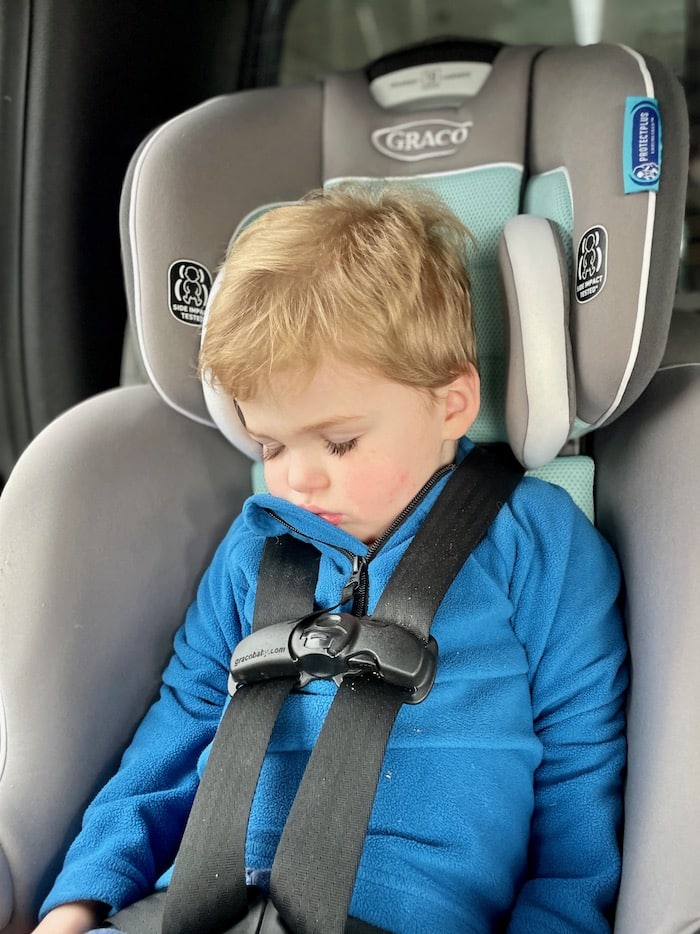
If you’re away with your family and your child feels out of sorts, their pediatrician can give you direction on over-the-counter medications and home remedies from afar.
33. When in doubt, have your child checked out!
If you’re wondering whether your son or daughter needs to see a doctor, take them to a local urgent care facility. It’s better to have them seen early on, in case they’re dealing with an ear infection or other diagnosis that warrants prescription medication.
34. Let your kids rest.
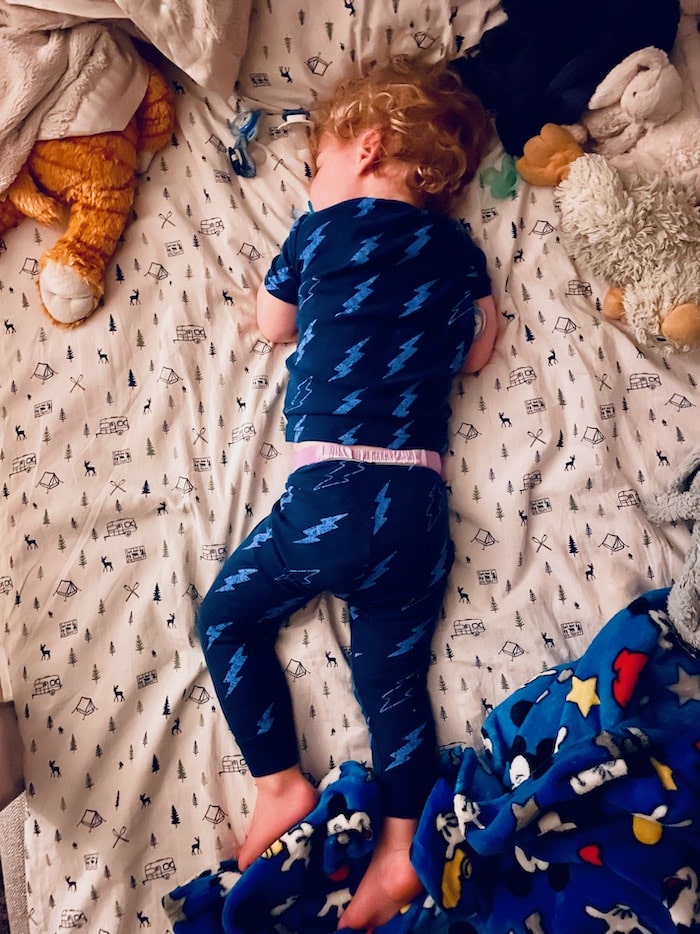
Even when you travel, make sure your child is set up for a solid night of sleep and plenty of nap time to help them recover.
35. For little ones, use the stroller.
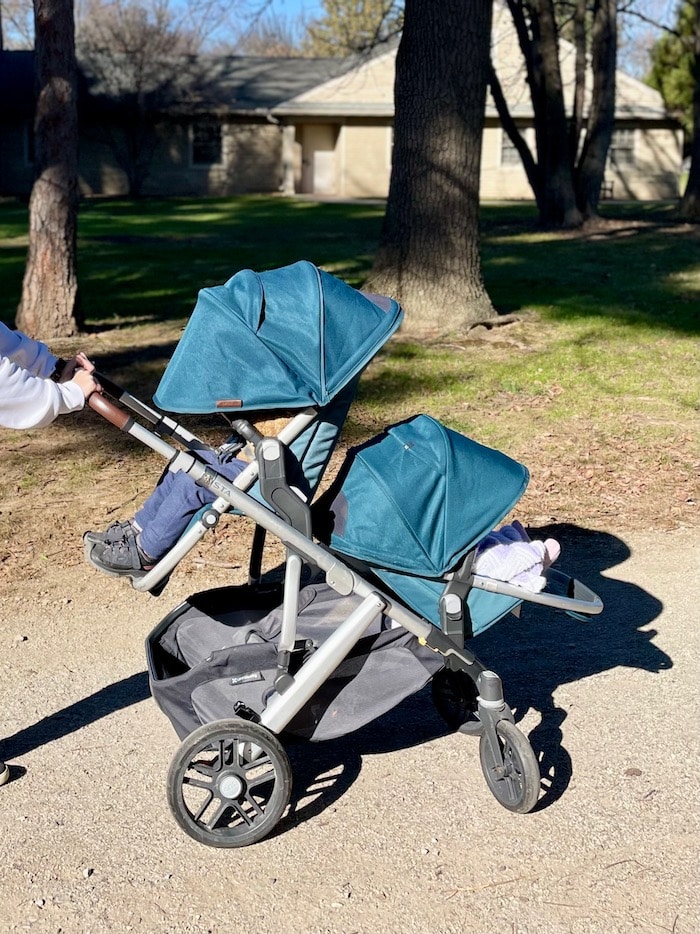
If the weather is mild, the stroller is a great way to let younger children rest on the go while getting some fresh air — as long as they aren’t feeling too bad. We love our large UPPAbaby Vista double stroller and our compact UPPAbaby Minu travel stroller.
36. Adjust your plans.
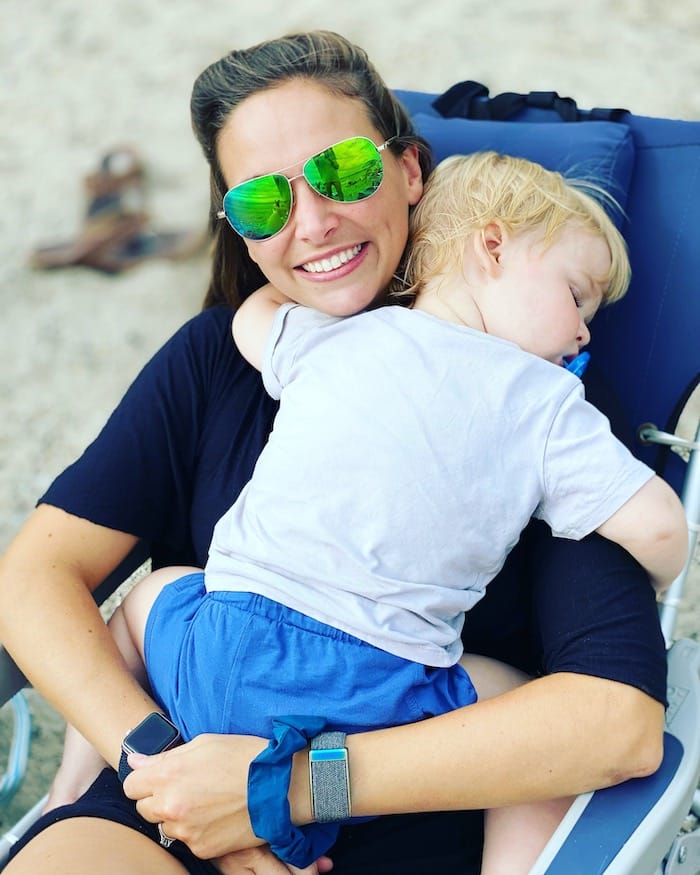
You probably won’t be able to do all the vacation activities you planned if your kids are feeling off. Avoid crowds, read some books, and lay low for the day instead of packing your schedule with hiking and sightseeing.
37. But still make it feel like vacation!
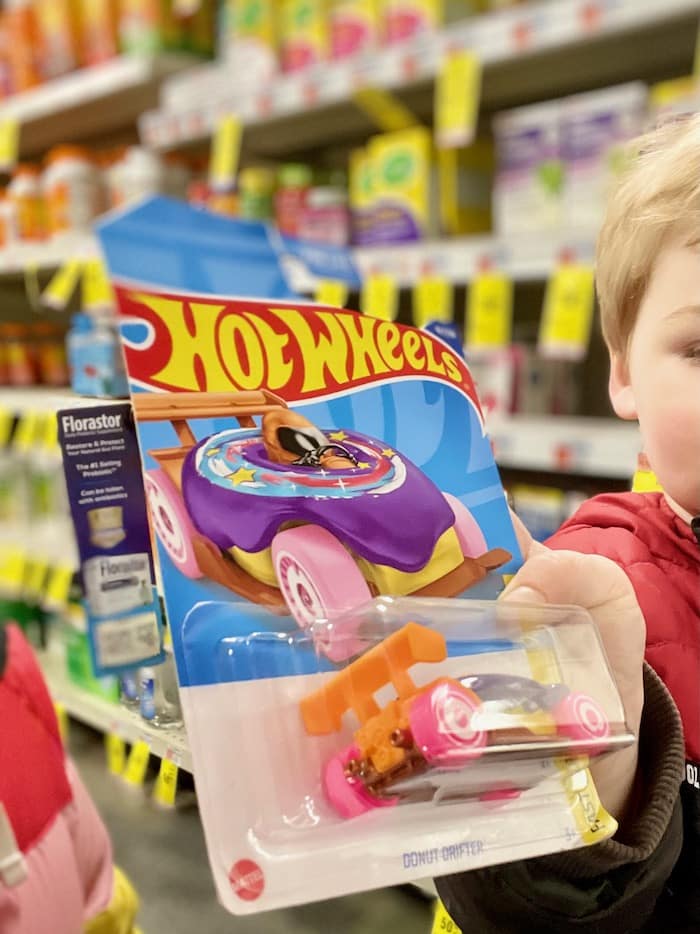
Even a Hot Wheels at the pharmacy can be special for tykes who are under the weather.
38. Encourage hydration.
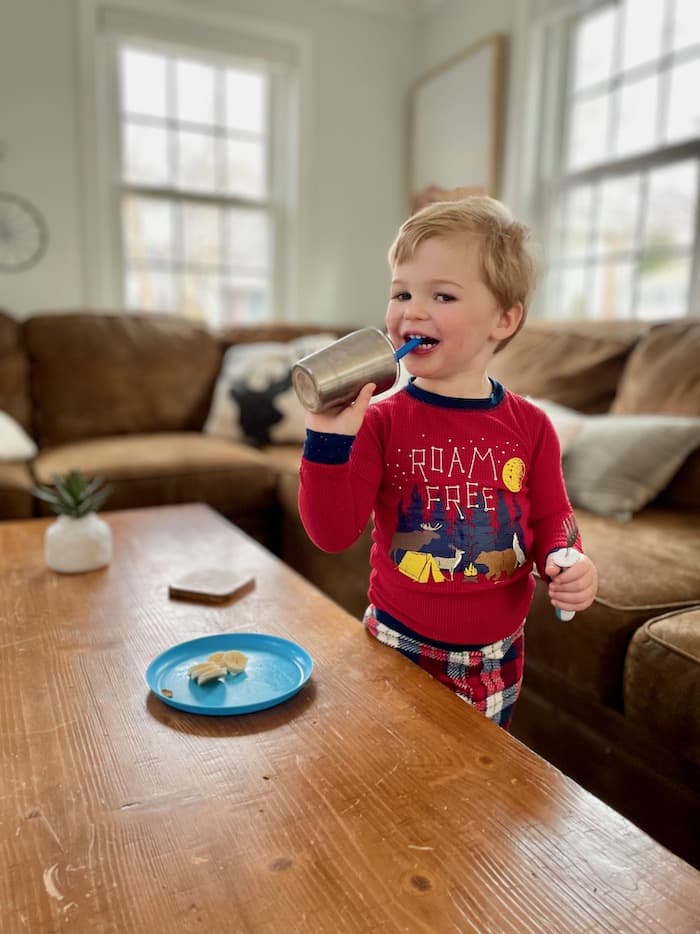
Offer your child plenty of water to prevent dehydration and loosen mucus.
If your child is losing fluids from vomiting or diarrhea, call the doctor and look for signs of dehydration that might warrant a hospital visit.
39. Restore nutrients with Pedialyte.
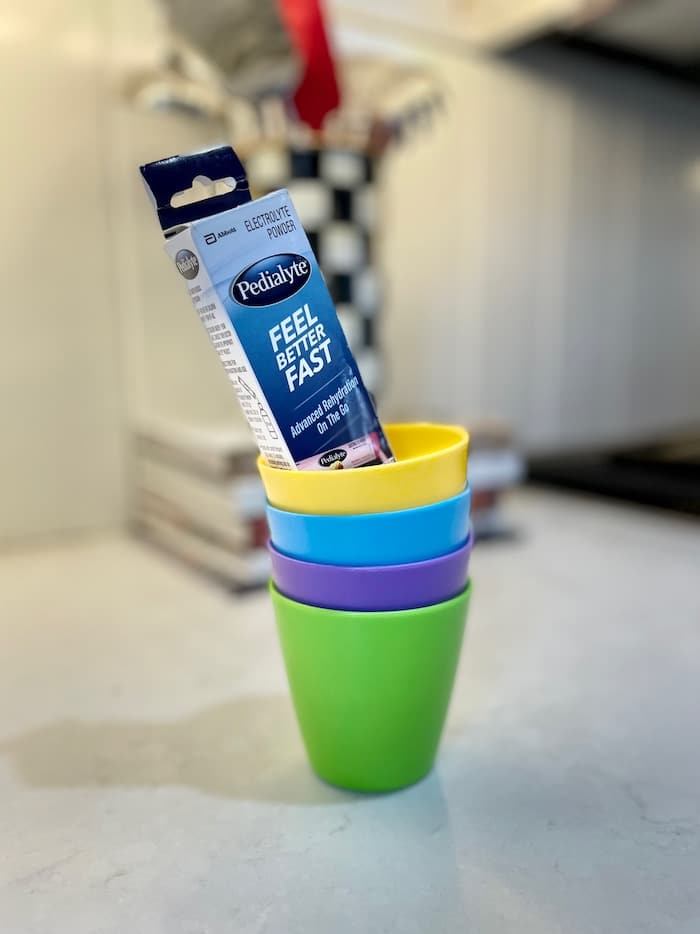
Oral rehydration solutions like Pedialyte can restore the water, salt, and sugar deficit caused by mild dehydration. Call your pediatrician for guidance on how much to offer your child if you think they might be dehydrated.
40. Run a steamy shower.
Clogged up noses can benefit from sitting in the bathroom with the shower on hot to breathe in that warm steam.
41. Prioritize comfort.

Help your child feel like they’re at home. For our family, that means blankets, stuffed bunnies, sibling cuddles, and pajamas all day.
42. Talk to your child about feeling sick.
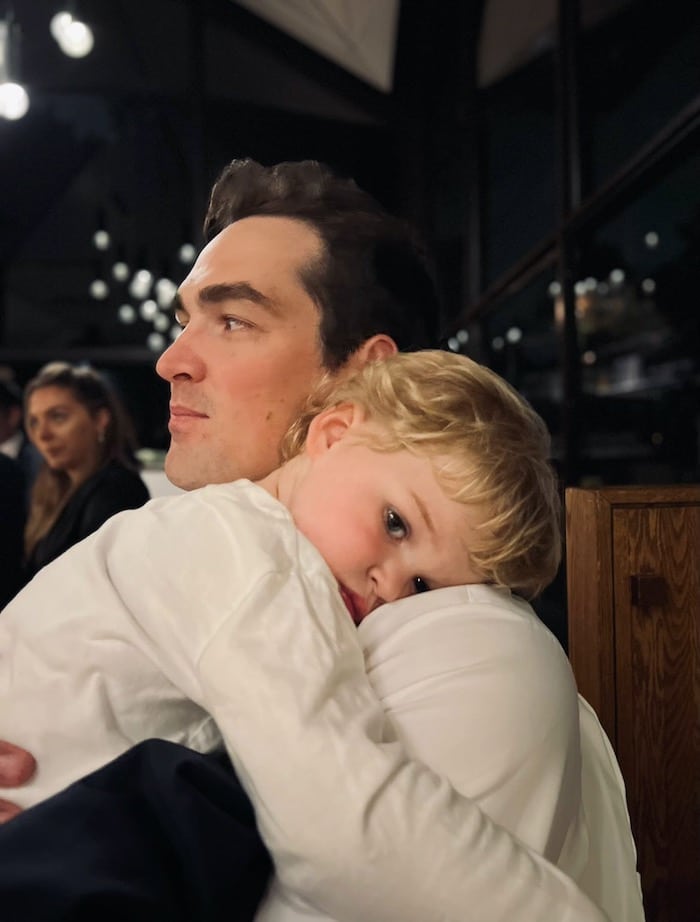
Getting an ear infection or a nasty virus can be confusing for toddlers and younger kids, especially when they’re away from home. Explain to them that their symptoms will be temporary, and talk to them about what you’re doing to help them feel better.
43. Spare your parent friends and relatives; cancel plans with other families!
You know how miserable it is when your youngster is under the weather. If you planned on seeing friends or relatives on your travels, think about postponing until your kid is symptom-free to prevent spreading those germs along.
44. Stick to simple food.
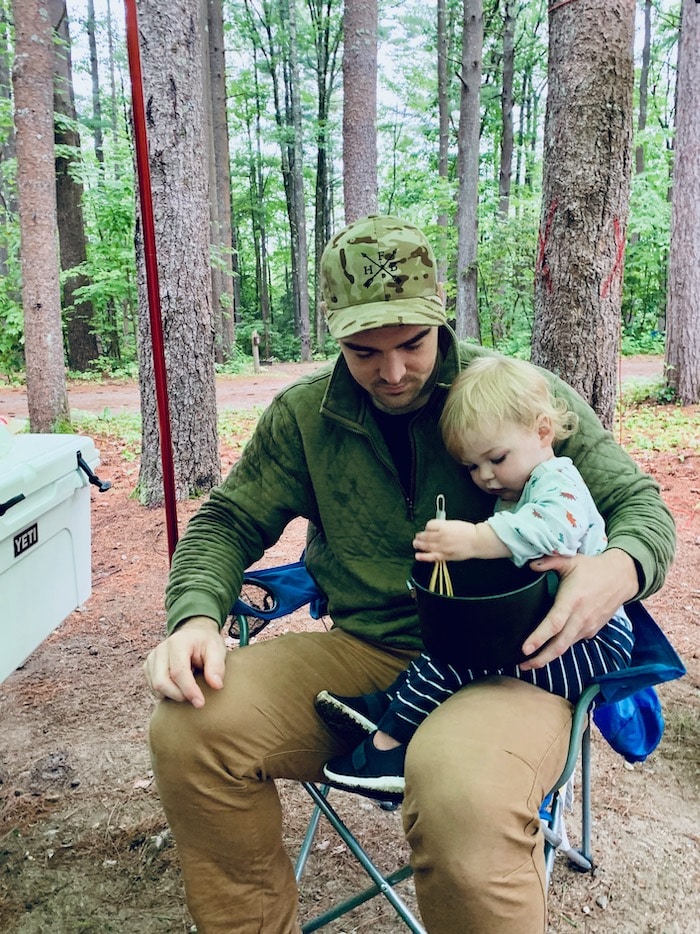
If your child has a cold, offering warm soup or tea can soothe soreness. Young ones with diarrhea may need to reduce solid food intake when symptoms begin, but the AAP recommends returning them to a well-balanced, age-appropriate diet within 24 hours if possible.
45. Be present.
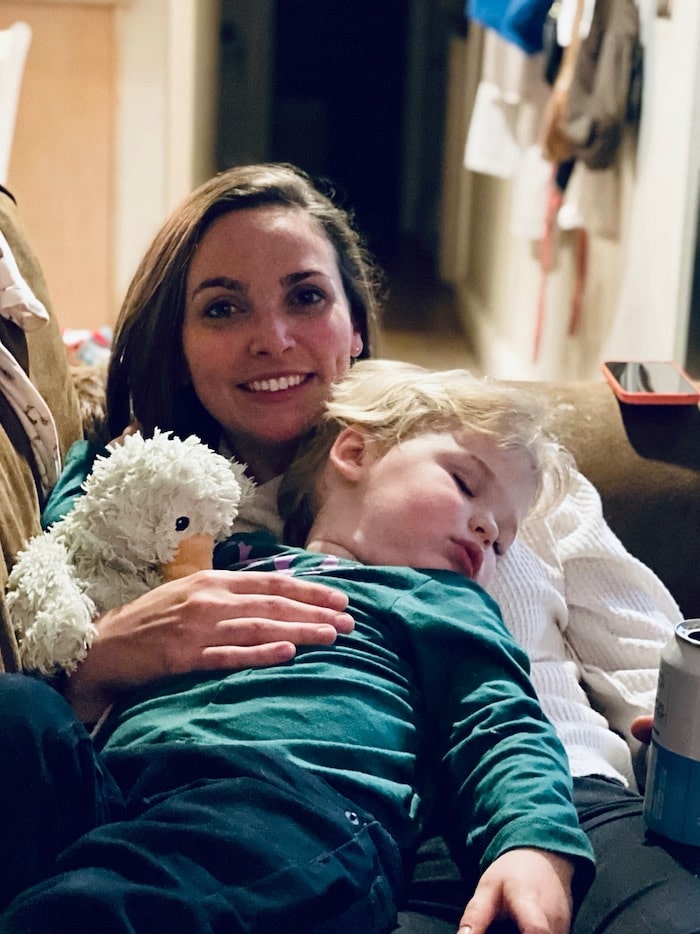
As much has having a sick child makes travel plans more difficult for parents, it’s that much harder to be the little one who’s feeling bad. Take advantage of the fact that you didn’t plan to work during this time. Read some books to your child or keep them company on the couch — and soak up those precious snuggles!
Pin me for later:
